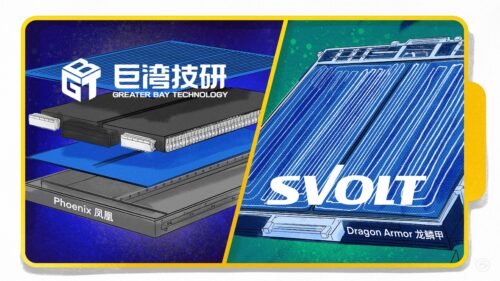China curbs graphite exports on national security grounds
Although China insists that the new export controls are not aimed at any specific country, they appear to be another result of U.S.-China trade tensions.

China will place export controls on some categories of graphite, a crucial component in the production of batteries for electric vehicles (EVs), in order to “safeguard national security and interests,” the Ministry of Commerce (MOFCOM) announced today, in a move that could further fuel geopolitical tension between Beijing and Washington over tech supply chains.
Under the new restrictions, China will as of December 1 require that exporters apply for permits to ship two types of graphite, including high-purity, high-hardness and high-intensity synthetic graphite material, and natural flake graphite and its products. These materials are deemed “highly sensitive” and therefore fall under “dual-use item” export controls — a label reserved for items that can have both civilian and military applications, the Ministry said in a statement.
Graphite is an essential ingredient in EV battery anodes, the terminals inside rechargeable cells. China is the world’s top graphite producer, and Japan, the U.S., India, and South Korea are its top buyers. China currently accounts for 67% of global supplies of the mineral in its natural form, and 90% of the synthetic variety used in virtually all EV battery anodes, which is typically more expensive but lasts longer, charges faster and improves safety.
Tit for tat curbs?
Beijing’s order follows recent efforts by the U.S. to expand curbs to keep advanced chipmaking gear out of China. Earlier this week, the Biden administration imposed additional limits on the kinds of advanced semiconductors that American companies can sell to the Chinese market, citing the desire to close perceived loopholes in existing regulations announced a year ago.
In response, MOFCOM condemned Washington for the controls, accusing it of “constantly overstretching the concept of national security, abusing export control measures and turning to unilateral bullying acts, which China is strongly dissatisfied with and firmly objects to.”
Meanwhile, as Chinese domestic EV manufacturers like BYD and SAIC accelerate their moves into Europe, the European Union is mulling increased tariffs on Chinese-made vehicles, arguing that they unfairly benefit from subsidies.
However, MOFCOM insisted that the new export controls are not aimed at any specific country, and also announced that it would remove the temporary curbs on five less sensitive graphite categories used in the steel, metallurgy, and chemical industries.
The curbs on graphite are similar to those introduced by Beijing in August for gallium and germanium, two rare metals essential for manufacturing semiconductors used in a variety of products, such as computer chips and solar panels. As a result, China exported no wrought gallium products in August and September, compared to 5.57 tons in September 2022.
Foreseeing supply chain issues caused by tit-for-tat China-U.S. trade restrictions, Tesla and other EV manufacturers already have moved to secure supplies of graphite outside of China. Earlier this year, Australian company Magnis Energy, which produces graphite concentrate in Tanzania, signed a binding offtake deal with Tesla to supply battery anode materials for a minimum three-year term beginning February 2025.






